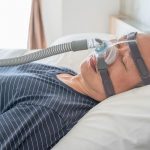
Single folks might seem like they’re free to have more fun, but a new study says they may pay the piper in their later years. Lifelong single folks have lower scores on life satisfaction measures than those in long-term relationships, according to a study published recently in the journal Psychological Science. Singles also score differently on measures of personality like extroversion, conscientiousness and adventurousness, results show. “There are differences between people who stay single their entire lives and people who get partnered, and for me this means that we have to take extra care of these people,” lead investigator Julia Stern, a senior researcher at the University of Bremen in Germany, said in a news release from the American Psychological Society. For the study, researchers surveyed more than 77,000 Europeans older than 50 hailing from 27 different countries. Of these participants, more than 4,900 had never been married, more than 2,900 had never lived with a partner, and nearly 2,400 had never been in a serious long-term relationship. Researchers figured that people who had been in a serious relationship in the past might have different personality traits than those who’ve never been in a committed partnership. And they were right — lifelong singles scored lower on extraversion, openness to new experiences, conscientiousness and life satisfaction, results show. All singles scored lower on those measures than… read on > read on >


















